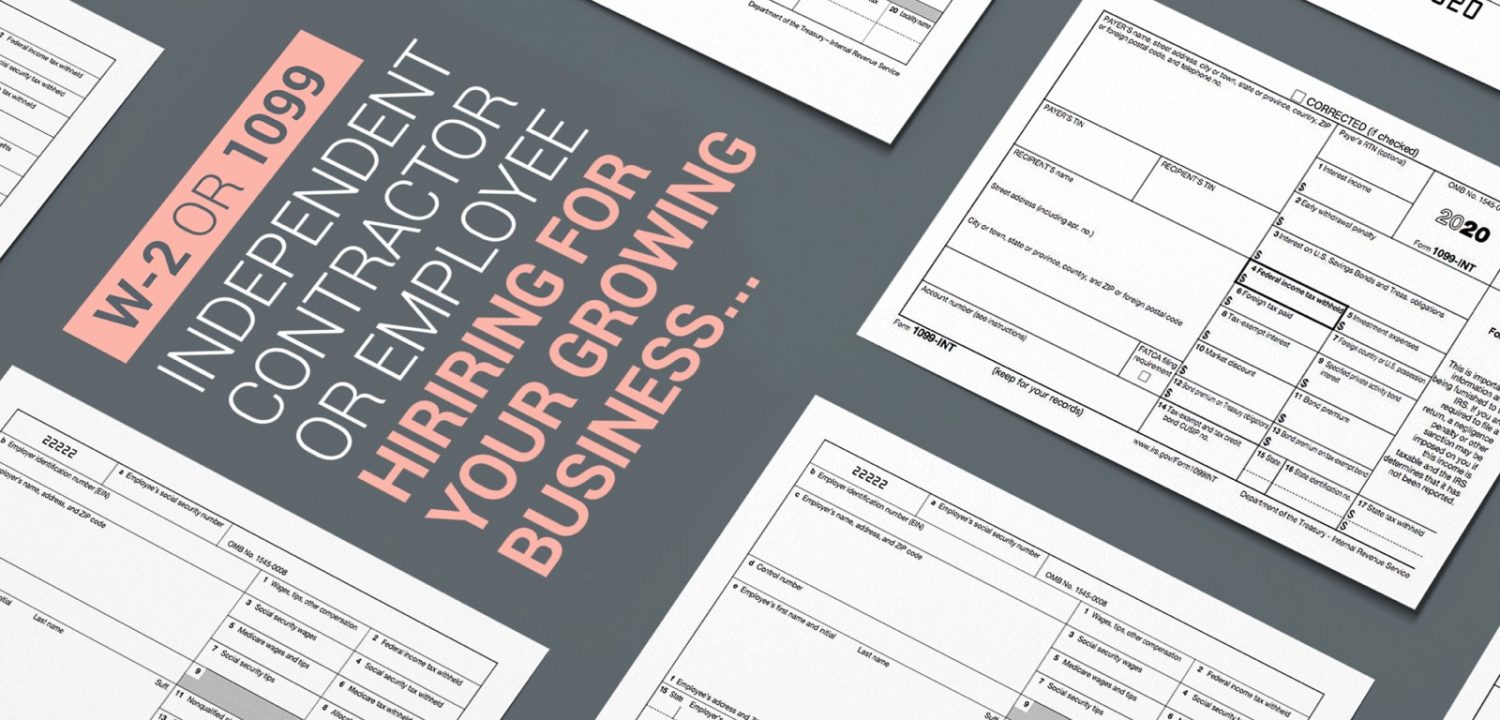Your business is growing and it’s time to expand your team. In order to scale your product or service, you likely need to multiply the output or diversify your mix. Maybe you need expertise on a specific project or to build out a specific area. But, should you hire a full-time employee, or does an independent contractor make sense at this point? Let’s look at some of the main differences, how the IRS classifies the scenarios and what it all means for your business.
Who is an Employee & What is an Independent Contractor?
The IRS classifies anyone who performs services for you as your employee if you can control what will be done and how it will be done. This means you also must provide the tools and all items relevant to your business such as computers and software. They also have a specific wage or salary and receive mandatory benefits. These include social security credits, unemployment insurance, workers compensation, minimum wage adherence and overtime pay if hourly versus salary. Health benefits and retirement plans also come into the mix, depending on the size of your company.
Independent contractors on the other hand have the freedom to complete their work at their pace. They create their own hours, at their own locations and with their own tools; all while adhering to the deliverables agreed upon. Many times, for business owners hiring an independent contractor could be the right option. With this type of set up, the costs and burdens on the company are limited.
Ensuring Compliance
So now let’s get into the most important item, whether you go the route of an employee or an independent contractor. It’s critical to categorize them correctly with the IRS, or consequences that will cost you time and money can follow. One time, a client partner hired an independent contractor who was not clear about the work relationship. Once the client decided to terminate the relationship, the contractor claimed for unemployment benefits. This triggered the client’s payroll account to be audited. And cost the client a lot of money in taxes, penalties and legal fees.
We recommend putting together a vendor packet for independent contractors. This packet should include a contractor agreement, required tax forms such as W-9 and a questionnaire requesting any other contact and emergency information. These packets are a good way to avoid complications when hiring contractors. They become a key component of your supporting documents for filling forms like the 1099-MISC.
Business owners must also adhere to employee and payroll regulations set by the Federal and State governments. All payroll records must be reported periodically, employer taxes and employee withholdings must be paid timely and annual forms such as W-2 forms need to be filed.
Your Best Course of Action for Hiring
As a business owner, the main benefit in hiring an employee is better involvement and engagement with the intent for longevity to become a key player that helps you grow your business. In essence, they are an integral part of your core team and adhere to a work schedule.
For independent contractors, the main benefits include, quite frankly the opposite of hiring an employee: no IRS withholding, no funding of health and retirement, and most important, flexibility in staffing for your growing business. However, they would be less engaged, though could be the right solution.
Staffing requirements and compliance are an important area of a successful business. DCC Accounting helps clients navigate these requirements to help small businesses thrive.



